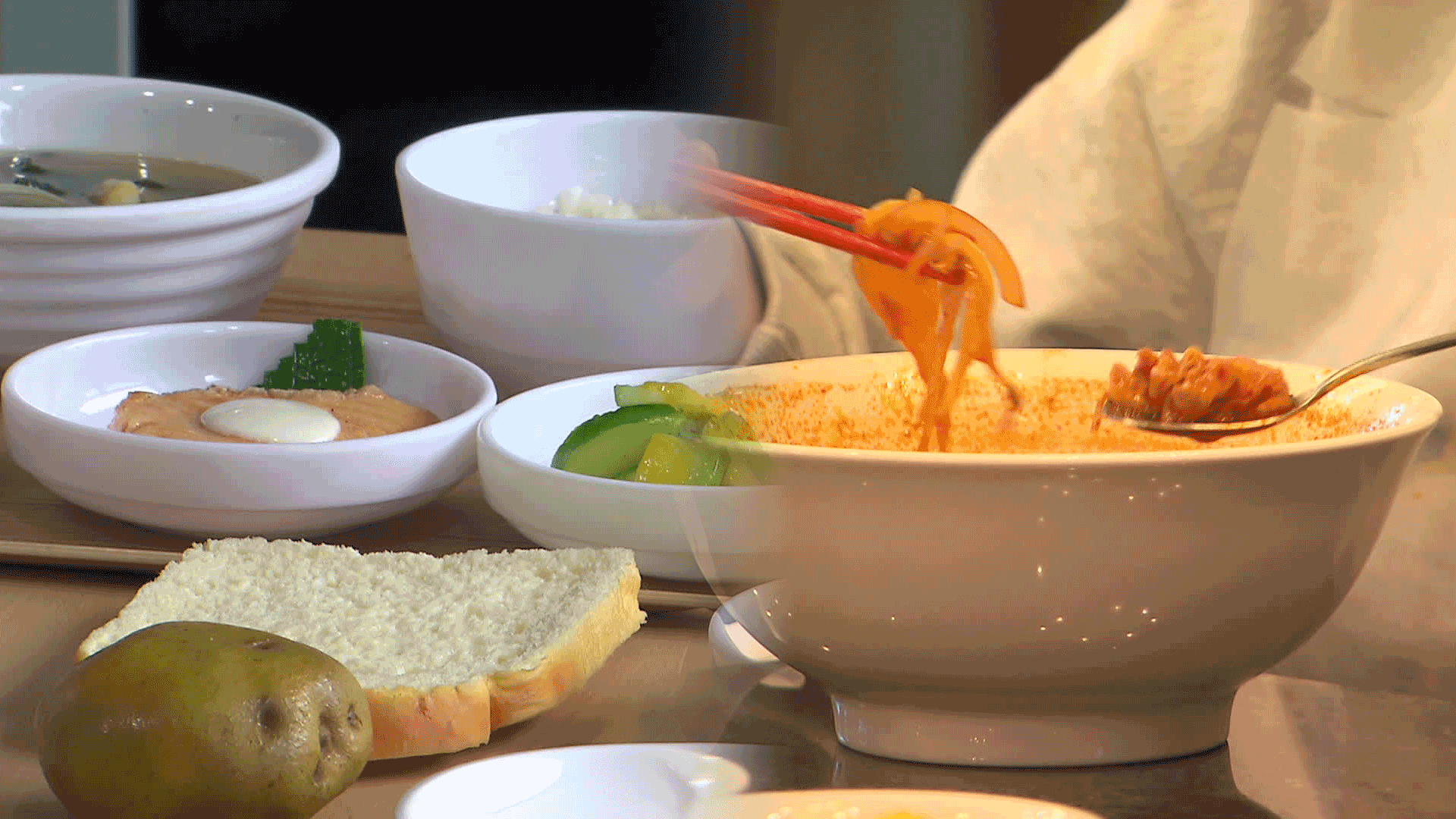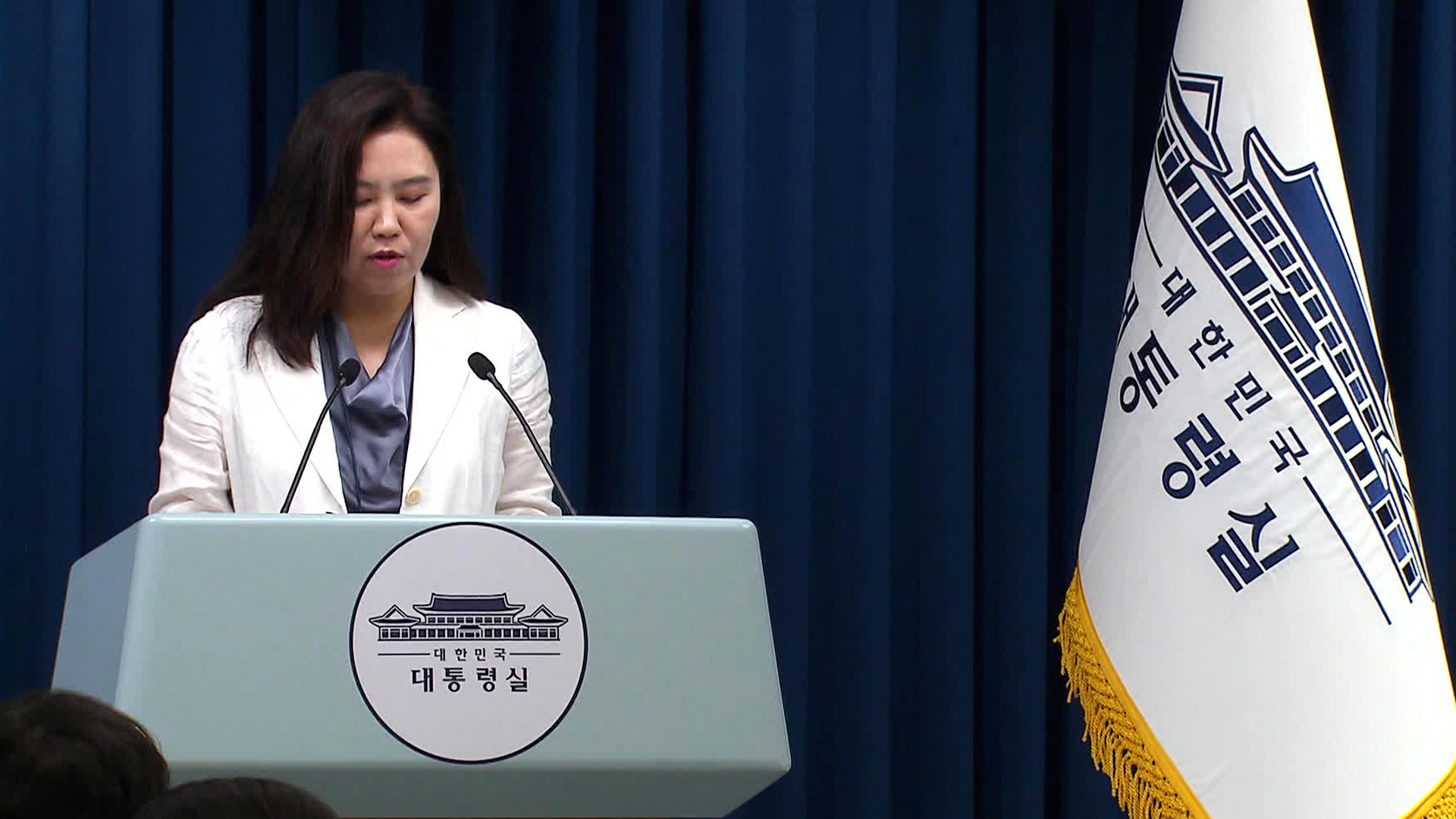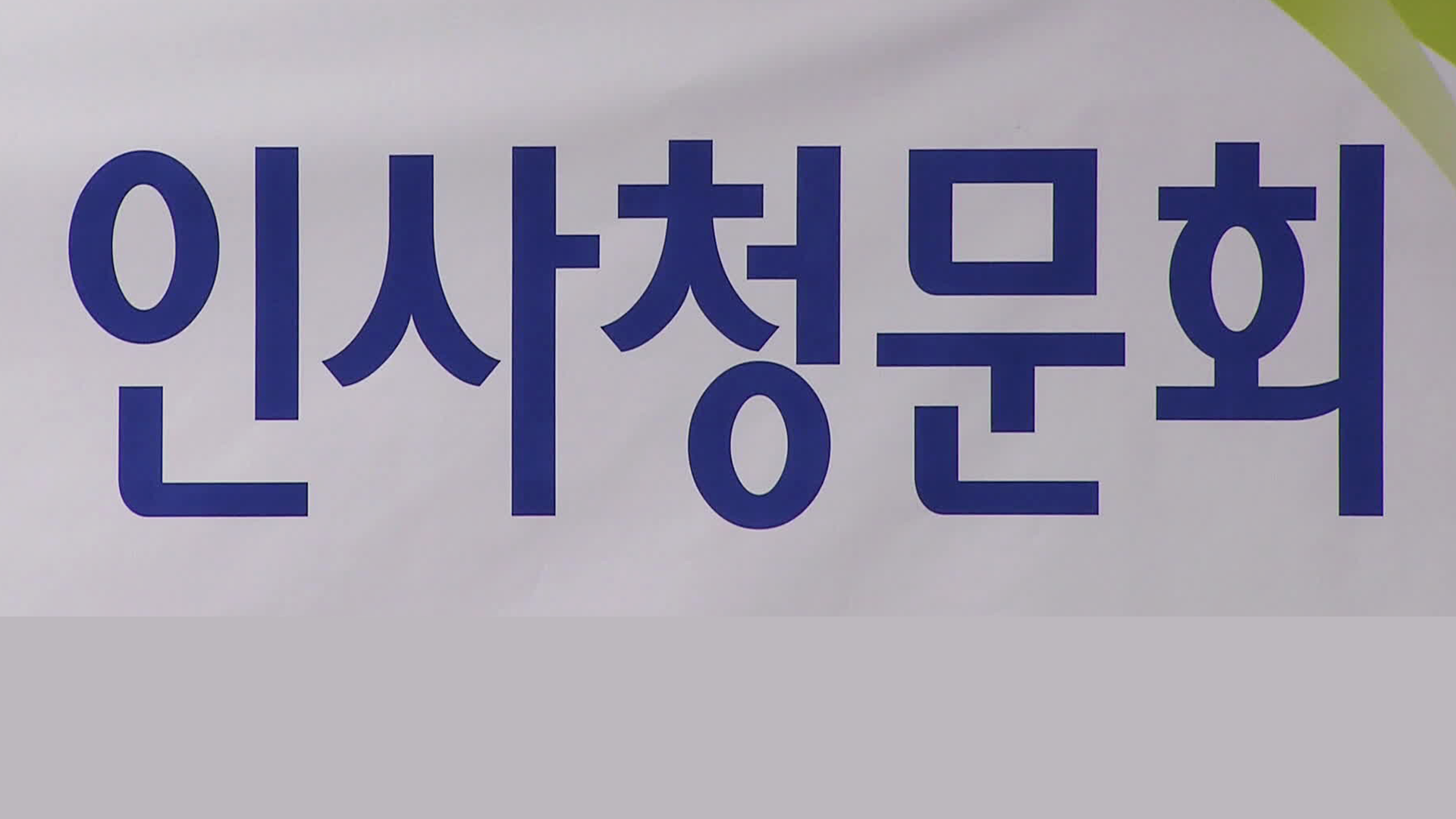[Anchor]
Kimchi stew, ramen, sundae soup. These are foods that often appear on our dining tables, but the salty taste always lingers as a concern.
It is common knowledge that excessive salt intake is not good for the health, especially because of its impact on the stomach, a key digestive organ.
How are you doing today? Today (July 12), we will explore the relationship between salty foods and stomach cancer, as well as practical methods for reducing salt intake.
Reporter Yoo Kwang-seok has the story.
[Report]
Meal education for stomach cancer surgery patients, who have had a portion of their stomach removed, emphasizes eating small amounts, frequently, and slowly,
Above all, salty foods should be avoided not only by patients but also by the general public.
[Kim Ji-yeon/Nutritionist at the National Cancer Center: "Eating foods that are heavily salted, like fermented seafood or pickled vegetables, is not advisable. When consuming meat, you should also avoid charred foods..."]
Excessive salt can damage the stomach lining, causing inflammation, which can develop into cancer if it occurs repeatedly.
The age-standardized incidence rate of stomach cancer per 100,000 people began to decline after 2011, and by 2022, it had decreased by 32.4% compared to ten years ago.
The average daily sodium intake of Koreans, which exceeded 5,000mg twenty years ago, has also shown a decreasing trend since the Ministry of Food and Drug Safety implemented sodium reduction policies in 2010.
Since stomach cancer is influenced by various factors such as diet, Helicobacter pylori, and family history, it is difficult to definitively conclude that the reduction in sodium intake has led to the decrease in stomach cancer incidence.
However, experts say that salty foods are a major risk factor for stomach cancer.
[Yang Han-gwang/Director of the National Cancer Center/Stomach Cancer Surgeon: "People in their 40s, 50s, or 60s have likely been exposed to these risk factors due to their dietary patterns of eating salty foods since they were young."]
Although sodium intake among Koreans has decreased, it is still 1.5 times higher compared to the World Health Organization's standard of 2,000mg.
This is largely due to high sodium intake from kimchi, soups, stews, and noodles.
If all three meals of the day consist of stews, one can consume over 6,000mg of sodium in a day.
[Hong Du-pyo/65 years old/Stomach cancer surgery patient: "Korean people mainly eat kimchi stew and ramen broth. (Did you eat a lot? Often?) Not that much. So it's a bit shocking to find out like this."]
Salty foods also weaken the stomach lining's defense function, making it easier for Helicobacter pylori to settle in the stomach lining and increasing the expression of toxic genes.
Ultimately, the combination of salt and Helicobacter pylori amplifies inflammatory responses, further increasing the risk of stomach cancer.
Clinical research from the National Cancer Center found that when early-stage stomach cancer patients and their families undergo Helicobacter eradication therapy, the risk of stomach cancer recurrence or occurrence decreases by over 50%.
[Choi Il-joo/Professor at the National Cancer Center/Stomach Cancer Center: "In cases where early stomach cancer is removed via endoscopy, the entire stomach lining remains intact, so treatment is essential, especially when there is a family history of stomach cancer."]
The five-year relative survival rate for stomach cancer is 78.4%, and if diagnosed at an early localized stage, the survival rate can rise to 97.4%, highlighting the importance of early diagnosis.
This is KBS News, Yoo Kwang-seok.
Kimchi stew, ramen, sundae soup. These are foods that often appear on our dining tables, but the salty taste always lingers as a concern.
It is common knowledge that excessive salt intake is not good for the health, especially because of its impact on the stomach, a key digestive organ.
How are you doing today? Today (July 12), we will explore the relationship between salty foods and stomach cancer, as well as practical methods for reducing salt intake.
Reporter Yoo Kwang-seok has the story.
[Report]
Meal education for stomach cancer surgery patients, who have had a portion of their stomach removed, emphasizes eating small amounts, frequently, and slowly,
Above all, salty foods should be avoided not only by patients but also by the general public.
[Kim Ji-yeon/Nutritionist at the National Cancer Center: "Eating foods that are heavily salted, like fermented seafood or pickled vegetables, is not advisable. When consuming meat, you should also avoid charred foods..."]
Excessive salt can damage the stomach lining, causing inflammation, which can develop into cancer if it occurs repeatedly.
The age-standardized incidence rate of stomach cancer per 100,000 people began to decline after 2011, and by 2022, it had decreased by 32.4% compared to ten years ago.
The average daily sodium intake of Koreans, which exceeded 5,000mg twenty years ago, has also shown a decreasing trend since the Ministry of Food and Drug Safety implemented sodium reduction policies in 2010.
Since stomach cancer is influenced by various factors such as diet, Helicobacter pylori, and family history, it is difficult to definitively conclude that the reduction in sodium intake has led to the decrease in stomach cancer incidence.
However, experts say that salty foods are a major risk factor for stomach cancer.
[Yang Han-gwang/Director of the National Cancer Center/Stomach Cancer Surgeon: "People in their 40s, 50s, or 60s have likely been exposed to these risk factors due to their dietary patterns of eating salty foods since they were young."]
Although sodium intake among Koreans has decreased, it is still 1.5 times higher compared to the World Health Organization's standard of 2,000mg.
This is largely due to high sodium intake from kimchi, soups, stews, and noodles.
If all three meals of the day consist of stews, one can consume over 6,000mg of sodium in a day.
[Hong Du-pyo/65 years old/Stomach cancer surgery patient: "Korean people mainly eat kimchi stew and ramen broth. (Did you eat a lot? Often?) Not that much. So it's a bit shocking to find out like this."]
Salty foods also weaken the stomach lining's defense function, making it easier for Helicobacter pylori to settle in the stomach lining and increasing the expression of toxic genes.
Ultimately, the combination of salt and Helicobacter pylori amplifies inflammatory responses, further increasing the risk of stomach cancer.
Clinical research from the National Cancer Center found that when early-stage stomach cancer patients and their families undergo Helicobacter eradication therapy, the risk of stomach cancer recurrence or occurrence decreases by over 50%.
[Choi Il-joo/Professor at the National Cancer Center/Stomach Cancer Center: "In cases where early stomach cancer is removed via endoscopy, the entire stomach lining remains intact, so treatment is essential, especially when there is a family history of stomach cancer."]
The five-year relative survival rate for stomach cancer is 78.4%, and if diagnosed at an early localized stage, the survival rate can rise to 97.4%, highlighting the importance of early diagnosis.
This is KBS News, Yoo Kwang-seok.
■ 제보하기
▷ 카카오톡 : 'KBS제보' 검색, 채널 추가
▷ 전화 : 02-781-1234, 4444
▷ 이메일 : kbs1234@kbs.co.kr
▷ 유튜브, 네이버, 카카오에서도 KBS뉴스를 구독해주세요!
- Salt intake raises risk of cancer
-
- 입력 2025-07-13 05:36:21

[Anchor]
Kimchi stew, ramen, sundae soup. These are foods that often appear on our dining tables, but the salty taste always lingers as a concern.
It is common knowledge that excessive salt intake is not good for the health, especially because of its impact on the stomach, a key digestive organ.
How are you doing today? Today (July 12), we will explore the relationship between salty foods and stomach cancer, as well as practical methods for reducing salt intake.
Reporter Yoo Kwang-seok has the story.
[Report]
Meal education for stomach cancer surgery patients, who have had a portion of their stomach removed, emphasizes eating small amounts, frequently, and slowly,
Above all, salty foods should be avoided not only by patients but also by the general public.
[Kim Ji-yeon/Nutritionist at the National Cancer Center: "Eating foods that are heavily salted, like fermented seafood or pickled vegetables, is not advisable. When consuming meat, you should also avoid charred foods..."]
Excessive salt can damage the stomach lining, causing inflammation, which can develop into cancer if it occurs repeatedly.
The age-standardized incidence rate of stomach cancer per 100,000 people began to decline after 2011, and by 2022, it had decreased by 32.4% compared to ten years ago.
The average daily sodium intake of Koreans, which exceeded 5,000mg twenty years ago, has also shown a decreasing trend since the Ministry of Food and Drug Safety implemented sodium reduction policies in 2010.
Since stomach cancer is influenced by various factors such as diet, Helicobacter pylori, and family history, it is difficult to definitively conclude that the reduction in sodium intake has led to the decrease in stomach cancer incidence.
However, experts say that salty foods are a major risk factor for stomach cancer.
[Yang Han-gwang/Director of the National Cancer Center/Stomach Cancer Surgeon: "People in their 40s, 50s, or 60s have likely been exposed to these risk factors due to their dietary patterns of eating salty foods since they were young."]
Although sodium intake among Koreans has decreased, it is still 1.5 times higher compared to the World Health Organization's standard of 2,000mg.
This is largely due to high sodium intake from kimchi, soups, stews, and noodles.
If all three meals of the day consist of stews, one can consume over 6,000mg of sodium in a day.
[Hong Du-pyo/65 years old/Stomach cancer surgery patient: "Korean people mainly eat kimchi stew and ramen broth. (Did you eat a lot? Often?) Not that much. So it's a bit shocking to find out like this."]
Salty foods also weaken the stomach lining's defense function, making it easier for Helicobacter pylori to settle in the stomach lining and increasing the expression of toxic genes.
Ultimately, the combination of salt and Helicobacter pylori amplifies inflammatory responses, further increasing the risk of stomach cancer.
Clinical research from the National Cancer Center found that when early-stage stomach cancer patients and their families undergo Helicobacter eradication therapy, the risk of stomach cancer recurrence or occurrence decreases by over 50%.
[Choi Il-joo/Professor at the National Cancer Center/Stomach Cancer Center: "In cases where early stomach cancer is removed via endoscopy, the entire stomach lining remains intact, so treatment is essential, especially when there is a family history of stomach cancer."]
The five-year relative survival rate for stomach cancer is 78.4%, and if diagnosed at an early localized stage, the survival rate can rise to 97.4%, highlighting the importance of early diagnosis.
This is KBS News, Yoo Kwang-seok.
Kimchi stew, ramen, sundae soup. These are foods that often appear on our dining tables, but the salty taste always lingers as a concern.
It is common knowledge that excessive salt intake is not good for the health, especially because of its impact on the stomach, a key digestive organ.
How are you doing today? Today (July 12), we will explore the relationship between salty foods and stomach cancer, as well as practical methods for reducing salt intake.
Reporter Yoo Kwang-seok has the story.
[Report]
Meal education for stomach cancer surgery patients, who have had a portion of their stomach removed, emphasizes eating small amounts, frequently, and slowly,
Above all, salty foods should be avoided not only by patients but also by the general public.
[Kim Ji-yeon/Nutritionist at the National Cancer Center: "Eating foods that are heavily salted, like fermented seafood or pickled vegetables, is not advisable. When consuming meat, you should also avoid charred foods..."]
Excessive salt can damage the stomach lining, causing inflammation, which can develop into cancer if it occurs repeatedly.
The age-standardized incidence rate of stomach cancer per 100,000 people began to decline after 2011, and by 2022, it had decreased by 32.4% compared to ten years ago.
The average daily sodium intake of Koreans, which exceeded 5,000mg twenty years ago, has also shown a decreasing trend since the Ministry of Food and Drug Safety implemented sodium reduction policies in 2010.
Since stomach cancer is influenced by various factors such as diet, Helicobacter pylori, and family history, it is difficult to definitively conclude that the reduction in sodium intake has led to the decrease in stomach cancer incidence.
However, experts say that salty foods are a major risk factor for stomach cancer.
[Yang Han-gwang/Director of the National Cancer Center/Stomach Cancer Surgeon: "People in their 40s, 50s, or 60s have likely been exposed to these risk factors due to their dietary patterns of eating salty foods since they were young."]
Although sodium intake among Koreans has decreased, it is still 1.5 times higher compared to the World Health Organization's standard of 2,000mg.
This is largely due to high sodium intake from kimchi, soups, stews, and noodles.
If all three meals of the day consist of stews, one can consume over 6,000mg of sodium in a day.
[Hong Du-pyo/65 years old/Stomach cancer surgery patient: "Korean people mainly eat kimchi stew and ramen broth. (Did you eat a lot? Often?) Not that much. So it's a bit shocking to find out like this."]
Salty foods also weaken the stomach lining's defense function, making it easier for Helicobacter pylori to settle in the stomach lining and increasing the expression of toxic genes.
Ultimately, the combination of salt and Helicobacter pylori amplifies inflammatory responses, further increasing the risk of stomach cancer.
Clinical research from the National Cancer Center found that when early-stage stomach cancer patients and their families undergo Helicobacter eradication therapy, the risk of stomach cancer recurrence or occurrence decreases by over 50%.
[Choi Il-joo/Professor at the National Cancer Center/Stomach Cancer Center: "In cases where early stomach cancer is removed via endoscopy, the entire stomach lining remains intact, so treatment is essential, especially when there is a family history of stomach cancer."]
The five-year relative survival rate for stomach cancer is 78.4%, and if diagnosed at an early localized stage, the survival rate can rise to 97.4%, highlighting the importance of early diagnosis.
This is KBS News, Yoo Kwang-seok.
-
-

유광석 기자 ksyoo@kbs.co.kr
유광석 기자의 기사 모음
-
이 기사가 좋으셨다면
-
좋아요
0
-
응원해요
0
-
후속 원해요
0















이 기사에 대한 의견을 남겨주세요.